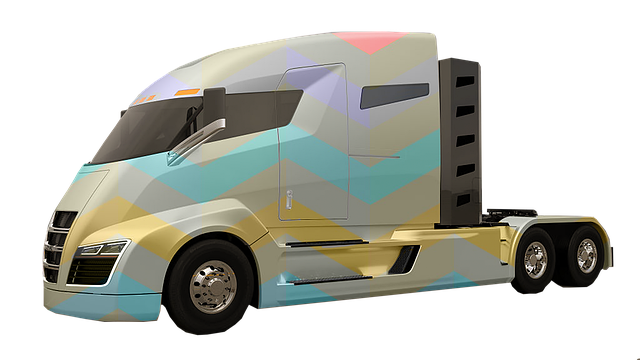Registering a car in California involves understanding specific requirements and gathering essential documents. Begin by ensuring your vehicle is eligible for registration and acquiring necessary paperwork, including proof of ownership and insurance. Perform a Vehicle Identification Number (VIN) check to verify your car’s details.
Next, choose an approved registration agent or DMV location to complete the process. Finally, fill out the registration application and pay associated fees. A successful VIN verification is crucial for a smooth registration experience in California.
- Understand California Car Registration Requirements
- Gather Necessary Documents for VIN Verification
- Perform Vehicle Identification Number (VIN) Check
- Choose an Approved Registration Agent or DMV Location
- Complete the Registration Process and Pay Fees
Understand California Car Registration Requirements

Before registering your car in California, it’s crucial to understand the state’s specific requirements. One key aspect is ensuring a valid and accurate Vehicle Identification Number (VIN) verification. California mandates that all vehicles undergo a thorough inspection to confirm their identity and condition. This process involves a detailed examination of various components, including the VIN itself, to ensure compliance with safety and emissions standards.
Additionally, you may opt for a mobile VIN inspection or use a mobile vin verifier service to streamline the initial verification step. These services offer convenience by allowing you to conduct the check from the comfort of your location, making it an efficient option for those preparing their car for registration. Remember, accurate documentation and adherence to California’s standards are essential to ensure a smooth registration process.
Gather Necessary Documents for VIN Verification

Before you start the registration process in California, ensure you have all the essential documents ready for a smooth and efficient vin verification. This is a crucial step in ensuring your vehicle’s history is accurately recorded. Gather the following:
1. Your vehicle’s VIN (Vehicle Identification Number) – this unique identifier can be found on the vehicle’s registration certificate, insurance policy, or even under the driver’s side hood.
2. Proof of ownership – typically, this would be a valid title document. If you’re registering a new car, the manufacturer or dealer should provide this.
3. Current registration documents (if transferring from another state) to ensure all details are accurate and up-to-date.
4. A valid driver’s license or state-issued ID card.
5. Proof of insurance – it’s mandatory in California.
6. If you’re using a mobile vin verification service, ensure they are approved by the California DMV to avoid any issues later.
Perform Vehicle Identification Number (VIN) Check

Before registering your car in California, it’s crucial to perform a Vehicle Identification Number (VIN) check. This step is essential for ensuring that the vehicle you’re planning to register is legitimate and has not been reported stolen or has any outstanding issues. A mobile VIN verifier can be an efficient tool to complete this task, allowing you to conduct a vin inspection conveniently without needing to visit a DMV office.
Simply enter your VIN into a reputable mobile vin verification service, and they’ll cross-check it against various databases to provide you with detailed information about the vehicle’s history. This includes accident reports, odometer readings, and any previous registrations, helping you make an informed decision before proceeding with the registration process in California.
Choose an Approved Registration Agent or DMV Location

When registering your car in California, it’s crucial to choose an approved registration agent or DMV location that offers accurate and efficient services. This decision is particularly important because California requires a thorough vehicle inspection, which includes a Vehicle Identification Number (VIN) verification process. Opting for a reputable service ensures that all necessary checks are conducted accurately, especially when dealing with sensitive data like VINs.
A reliable option is to engage the services of a mobile VIN verifier or use a mobile VIN inspection app. These tools allow for convenient and precise VIN verification, ensuring your car meets all legal standards before registration. By choosing the right agent or location, you streamline the registration process while maintaining the integrity of your vehicle’s information.
Complete the Registration Process and Pay Fees

After gathering all the necessary documents and ensuring your vehicle meets California’s requirements, it’s time to complete the registration process and pay associated fees. This involves visiting a designated California Department of Motor Vehicles (DMV) office or utilizing their online services, depending on your preference. During this step, you’ll need to provide proof of identity, insurance, and ownership, as well as undergo a vin verification process, which is crucial for accurate registration.
The fees vary based on the type of vehicle and the specific services required, such as a regular registration, title transfer, or updated inspection (like a vin inspection or mobile vin verification). It’s essential to be prepared with all necessary payment methods allowed by the DMV to expedite the process. Once your application is approved, you’ll receive your registration documents and official California license plates, marking the successful completion of your vehicle registration journey.
Registering a car in California involves several straightforward steps, from understanding the state’s requirements to completing the VIN verification process. Ensure you have all necessary documents ready, as this streamlines the registration at either a DMV location or an approved agent. By adhering to these steps and providing accurate information, you’ll successfully navigate the car registration process, ensuring your vehicle is legally recognized on California roads.
